Science
Science books explain natural phenomena, scientific theories, and discoveries for general or specialized audiences.

Breath
by Tim Winton
Breath explores the lost art and science of breathing, revealing surprising connections between our respiratory habits and our physical and mental well-being. James Nestor delves into historical practices and modern research to uncover the profound impact of proper breathing techniques on everything from sleep and anxiety to athletic performance and overall health.

Guns, Germs, and Steel: The Fates of Human Societies
In 'Guns, Germs, and Steel: The Fates of Human Societies,' Jared Diamond explores the factors that led to the differing societal development across the globe. Through an interdisciplinary approach, Diamond delves into the roles of geography, biology, and technology in shaping human history. He examines how environmental factors like availability of domesticable plants and animals influenced the rise of civilizations and the inequalities in power dynamics. This thought-provoking book challenges conventional Eurocentric views of history, offering a compelling argument for the disparities in success among societies. 'Guns, Germs, and Steel' is a captivating read that sheds light on the complexities of human civilizations.
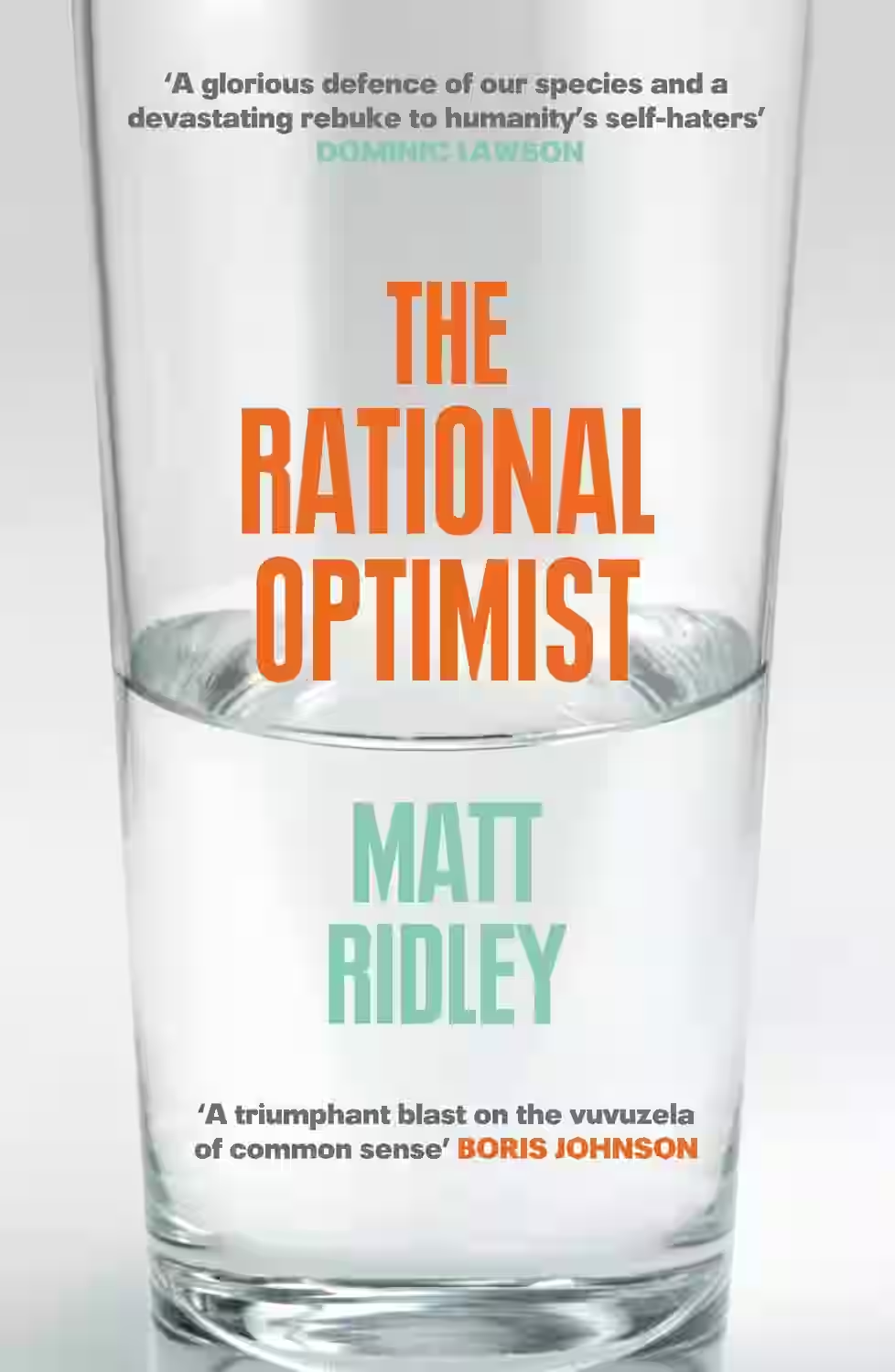
Rational Optimist
by Matt Ridley
Ridley argues that human progress stems from exchange, innovation, and cooperation—not central planning or pessimism. Spanning economics, history, and biology, The Rational Optimist makes a compelling case for why life continues to improve despite global challenges. It’s an optimistic, data-rich celebration of markets, technology, and humanity’s problem-solving nature.
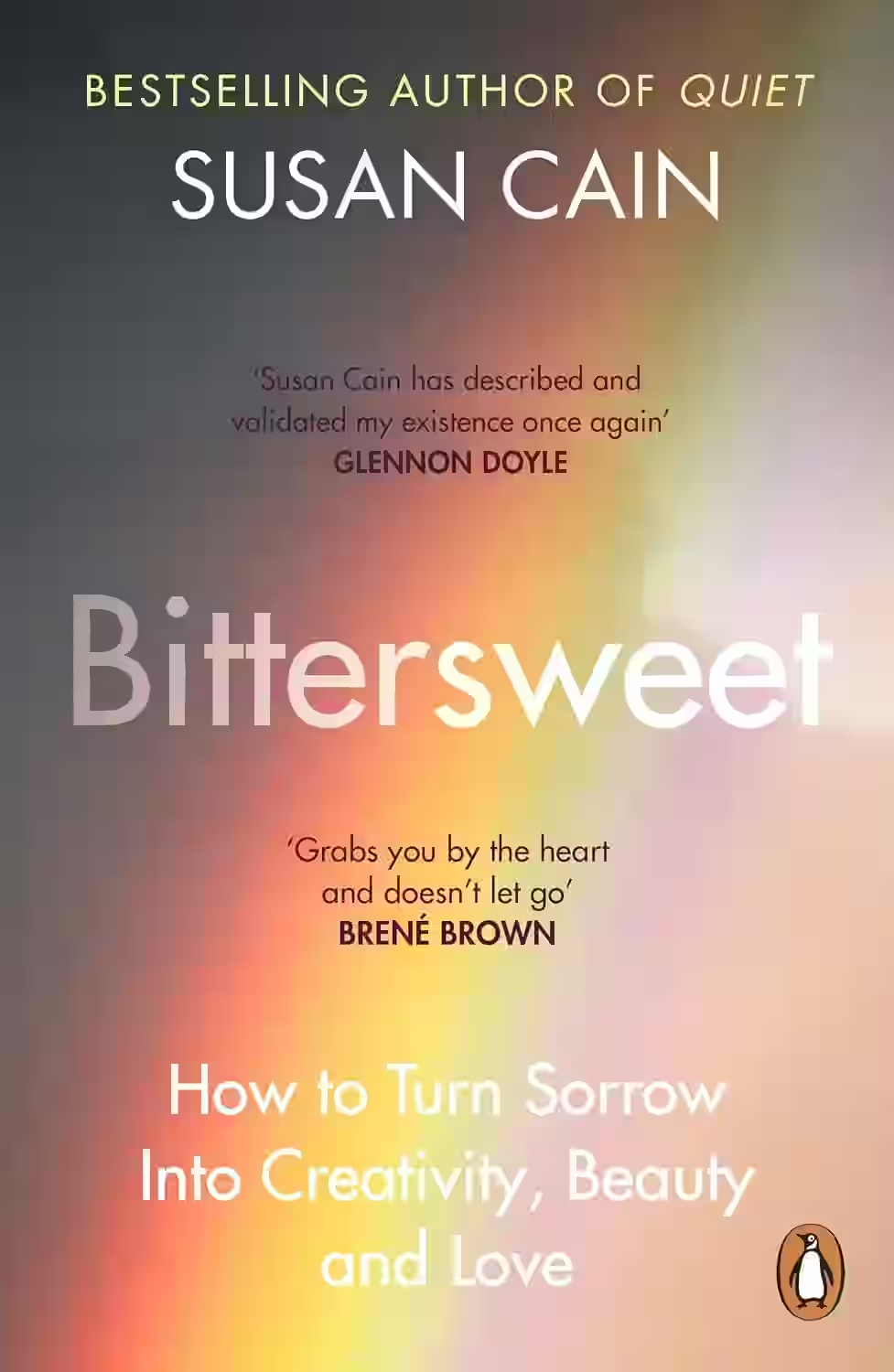
Bittersweet
by Susan Cain
In Bittersweet, Susan Cain examines the power of embracing sorrow and longing as essential aspects of the human experience. She argues that acknowledging and accepting these emotions can lead to greater creativity, connection, and fulfillment. Drawing on research and personal anecdotes, Cain challenges the cultural emphasis on constant positivity, advocating for a more nuanced understanding of happiness. The book offers a compelling perspective on the value of melancholy and its role in leading a meaningful life.
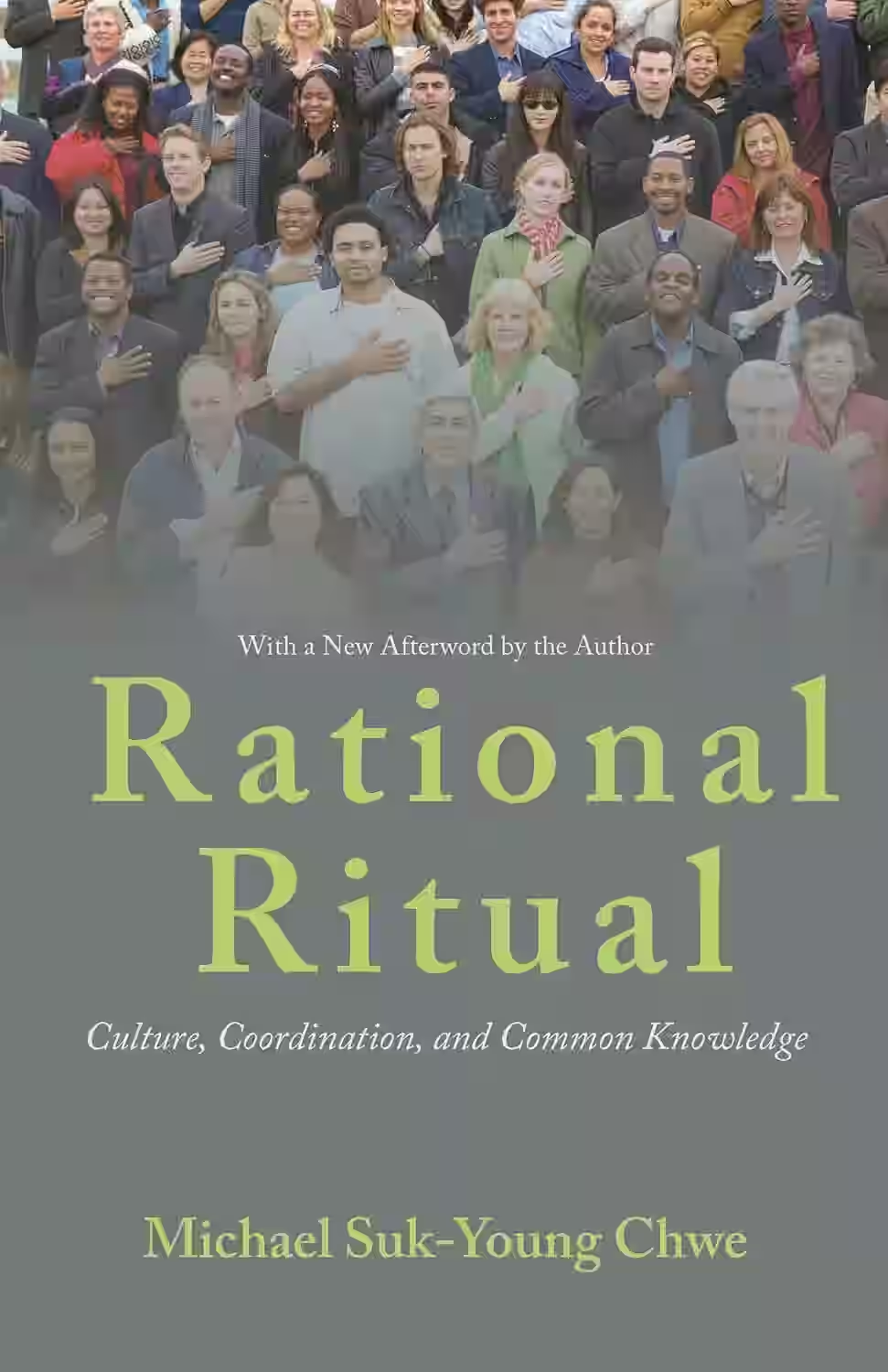
Rational Ritual
Rational Ritual explores how rituals—from presidential inaugurations to sports events—create common knowledge, a shared awareness that everyone knows everyone knows. Chwe, a game theorist, argues that these shared experiences are vital for coordination in society. By applying game theory to cultural rituals, he sheds light on why such practices persist and how they help societies function. The book offers unique insights into advertising, politics, and social networks. Zuckerberg recommended Rational Ritual for its relevance to online platforms, where creating and managing shared experiences is key. It’s an intellectually stimulating read for anyone interested in the intersection of culture and logic.
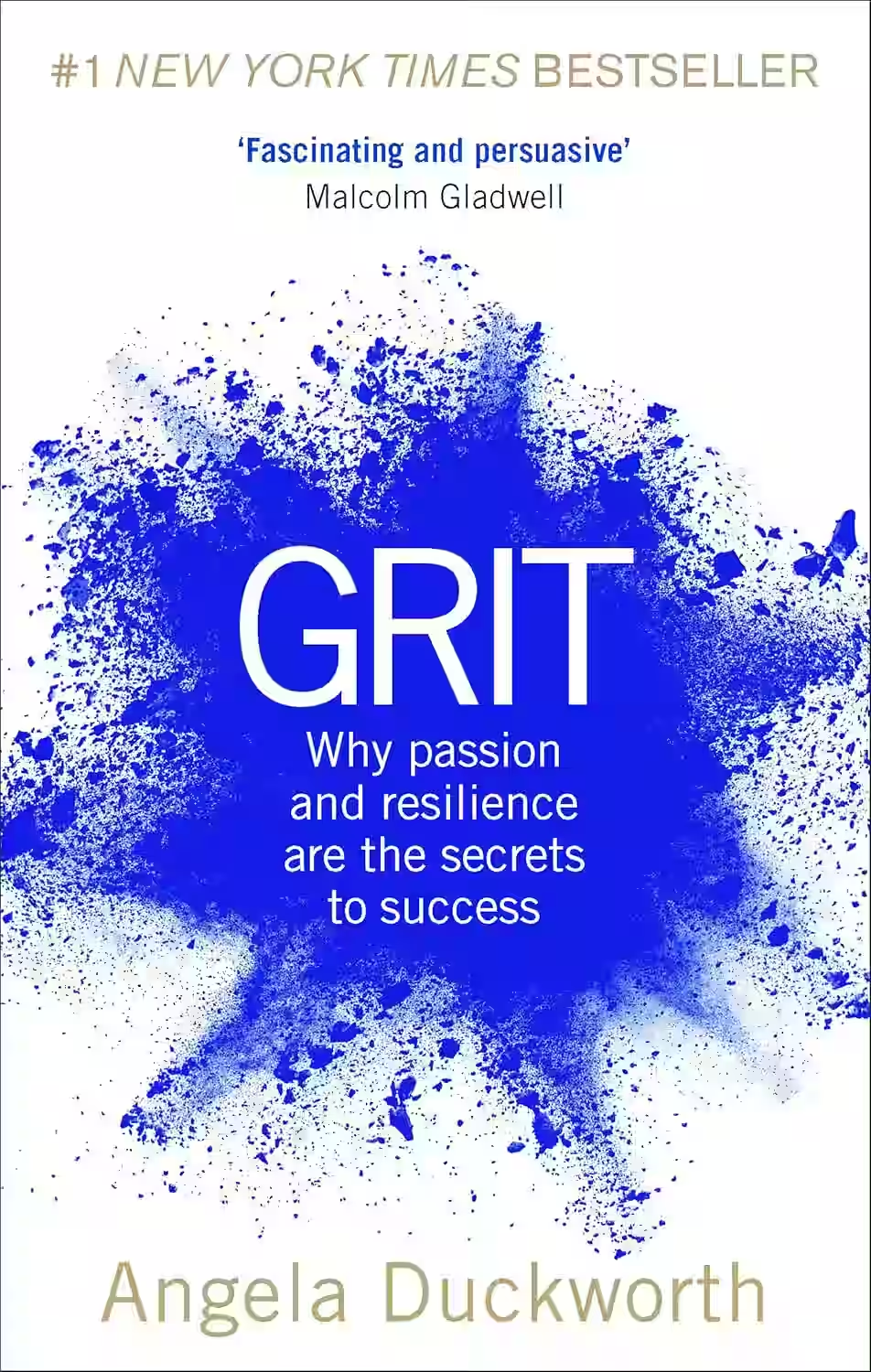
Grit
In Grit, psychologist Angela Duckworth explores why talent alone doesn’t predict success—grit does. Based on her research, Duckworth argues that sustained passion and persistent effort matter more than innate ability. She shares stories of high achievers from diverse fields, showing how resilience, long-term focus, and consistent hard work lead to exceptional outcomes. The book combines personal anecdotes, scientific studies, and practical strategies to help readers develop grit in their own lives. Duckworth’s insights challenge the myth of overnight success and inspire readers to pursue their goals with tenacity, regardless of obstacles or setbacks.
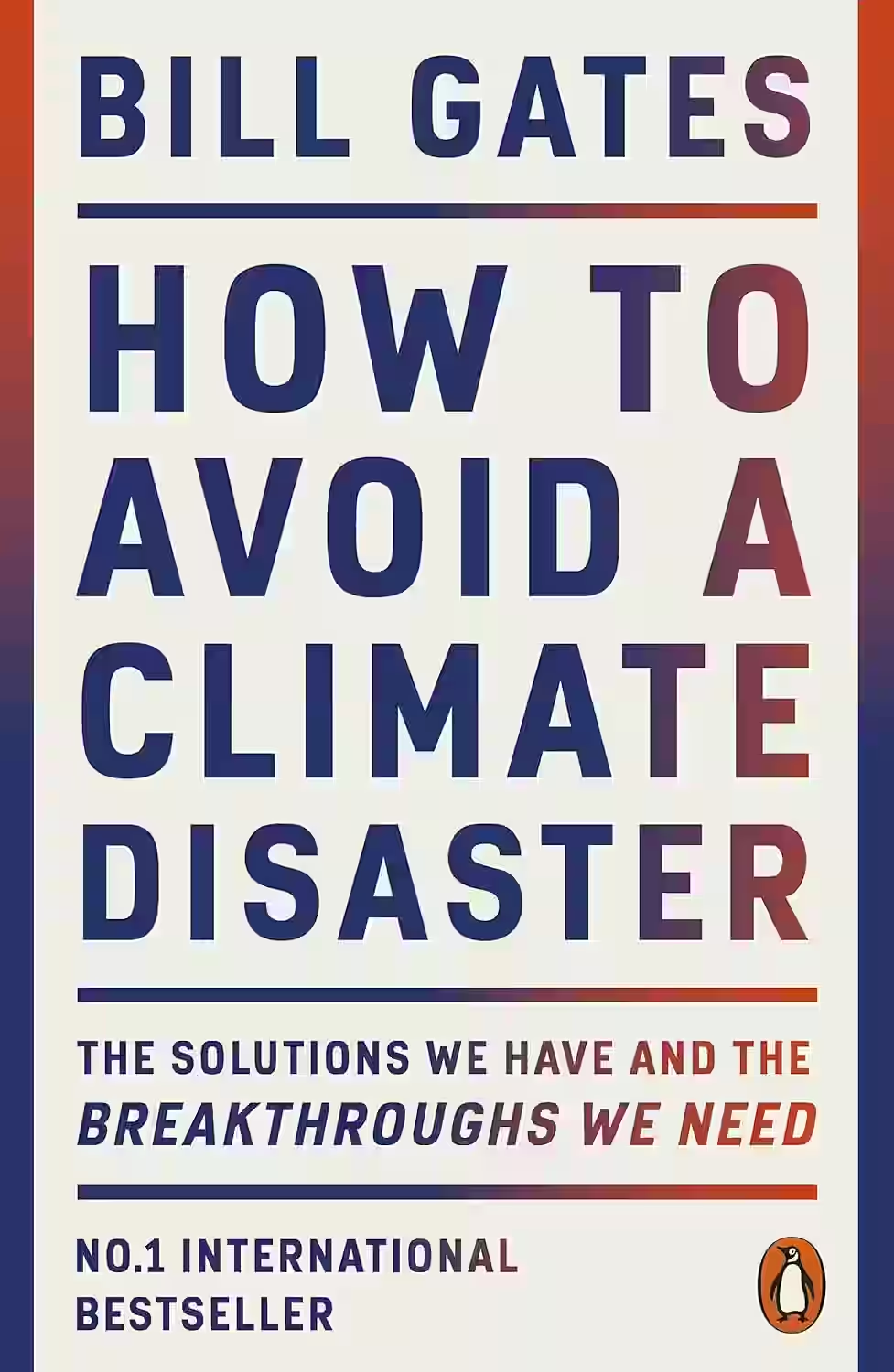
How to Avoid a Climate Disaster
by Bill Gates
In this pragmatic and solutions-focused book, Bill Gates outlines a comprehensive plan to achieve net-zero greenhouse gas emissions and avoid the worst effects of climate change. Drawing from expert insights and his own investments in green technology, Gates explores how innovation in energy, manufacturing, transportation, and agriculture can help us decarbonize. He emphasizes the importance of global cooperation, public policy, and economic incentives to drive progress. Accessible and action-oriented, How to Avoid a Climate Disaster aims to inform readers and policymakers alike, offering optimism grounded in science and a roadmap for navigating one of humanity’s greatest challenges.
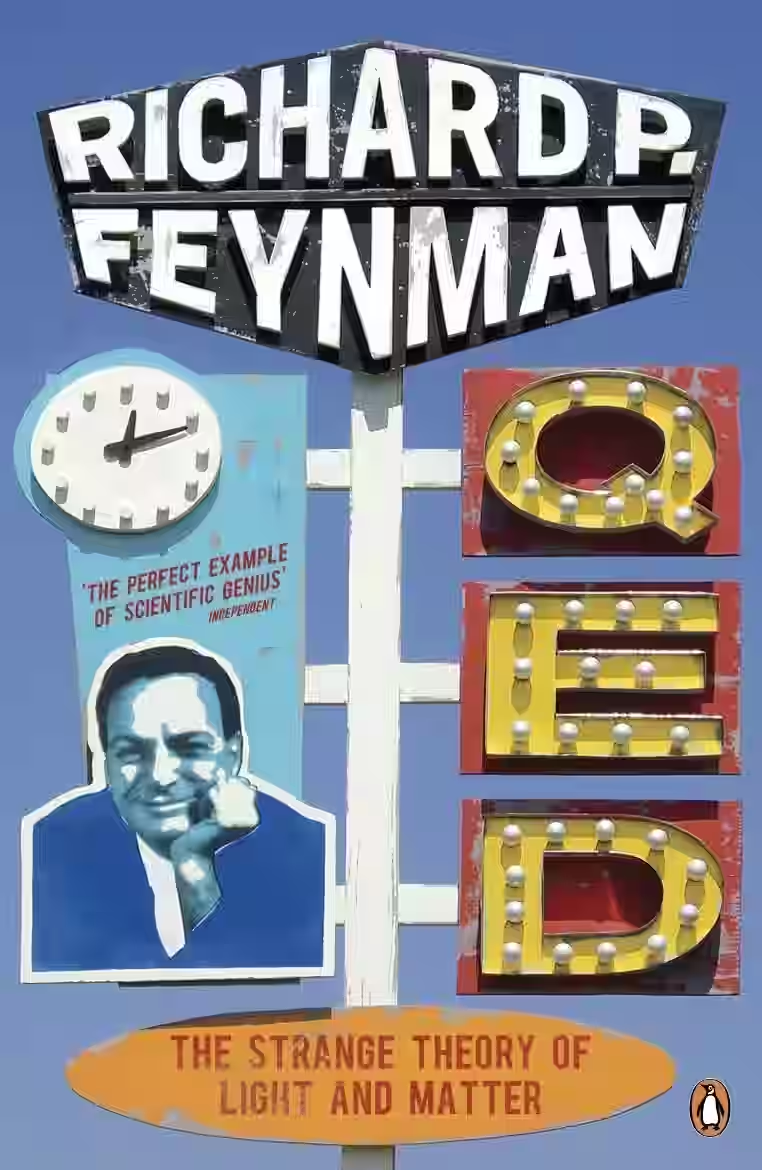
QED: The Strange Theory of Light and Matter
Nobel laureate Richard P. Feynman unravels the revolutionary science that earned him the prize with his signature lucid and witty style. Quantum electrodynamics, or QED, is the theory explaining the intricate interactions between light and electrons, illuminating the deepest mysteries of our universe. Celebrated for its accuracy and enduring validity, QED, thanks to Feynman and his colleagues, stands as a cornerstone of modern physics. Through engaging everyday examples, Feynman delivers the definitive and accessible introduction to this profound theory.
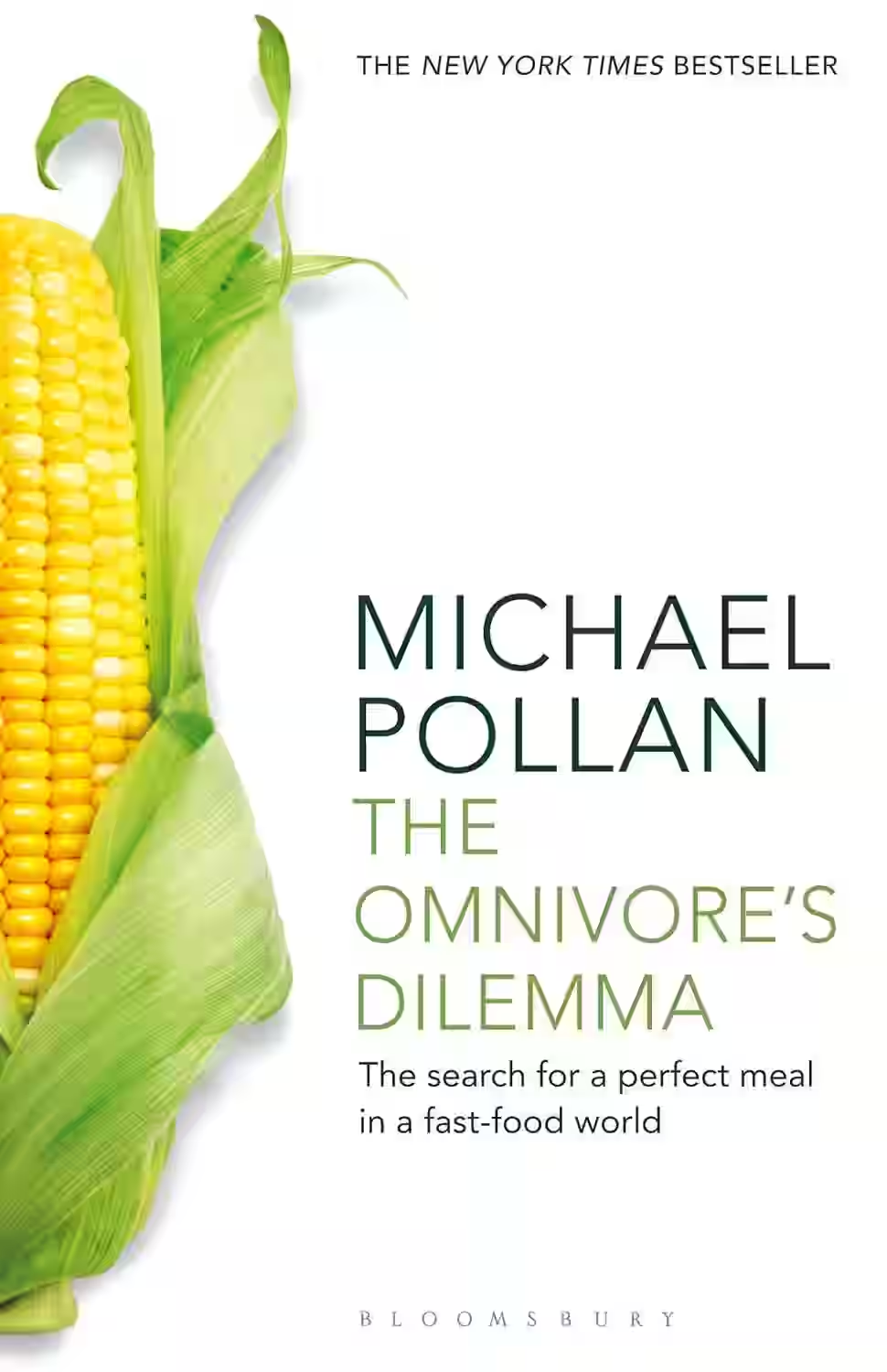
The Omnivore's Dilemma
What shall we have for dinner? Such a simple question has grown to have a very complicated answer. We can eat almost anything nature has to offer, but deciding what we should eat stirs anxiety. Should we choose the organic apple or the conventional? If organic, local or imported? Wild fish or farmed? Low-carb or low-cal? As the American culture of fast food and unlimited choice invades the world, Pollan follows his next meal from land to table, tracing the origin of everything consumed and the implications for ourselves and our planet. His astonishing findings will shock all who care about what they put on their plate.
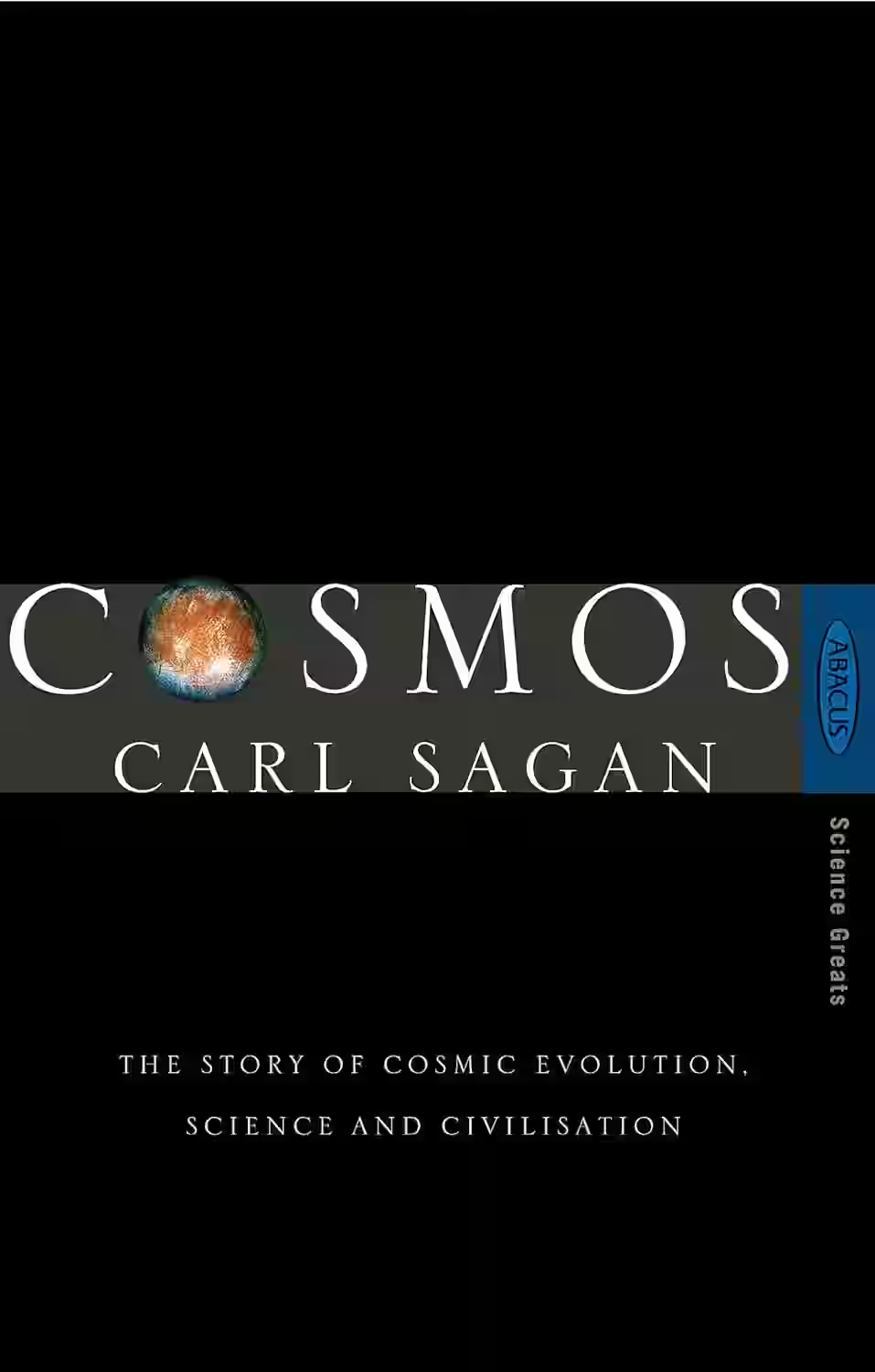
Cosmos
by Carl Sagan
In Carl Sagan's 'Cosmos', readers embark on a thrilling journey through the vast cosmos, exploring the wonders of our universe and humanity's place within it. With profound insight and poetic prose, Sagan delves into topics like space exploration, evolution, and the origins of life, bridging science and philosophy seamlessly. Through this masterpiece, he ignites a sense of curiosity and awe, urging us to ponder our existence and the mysteries of the cosmos. 'Cosmos' not only educates but also inspires readers to embrace science and reason, fostering a greater appreciation for the interconnectedness of all things.
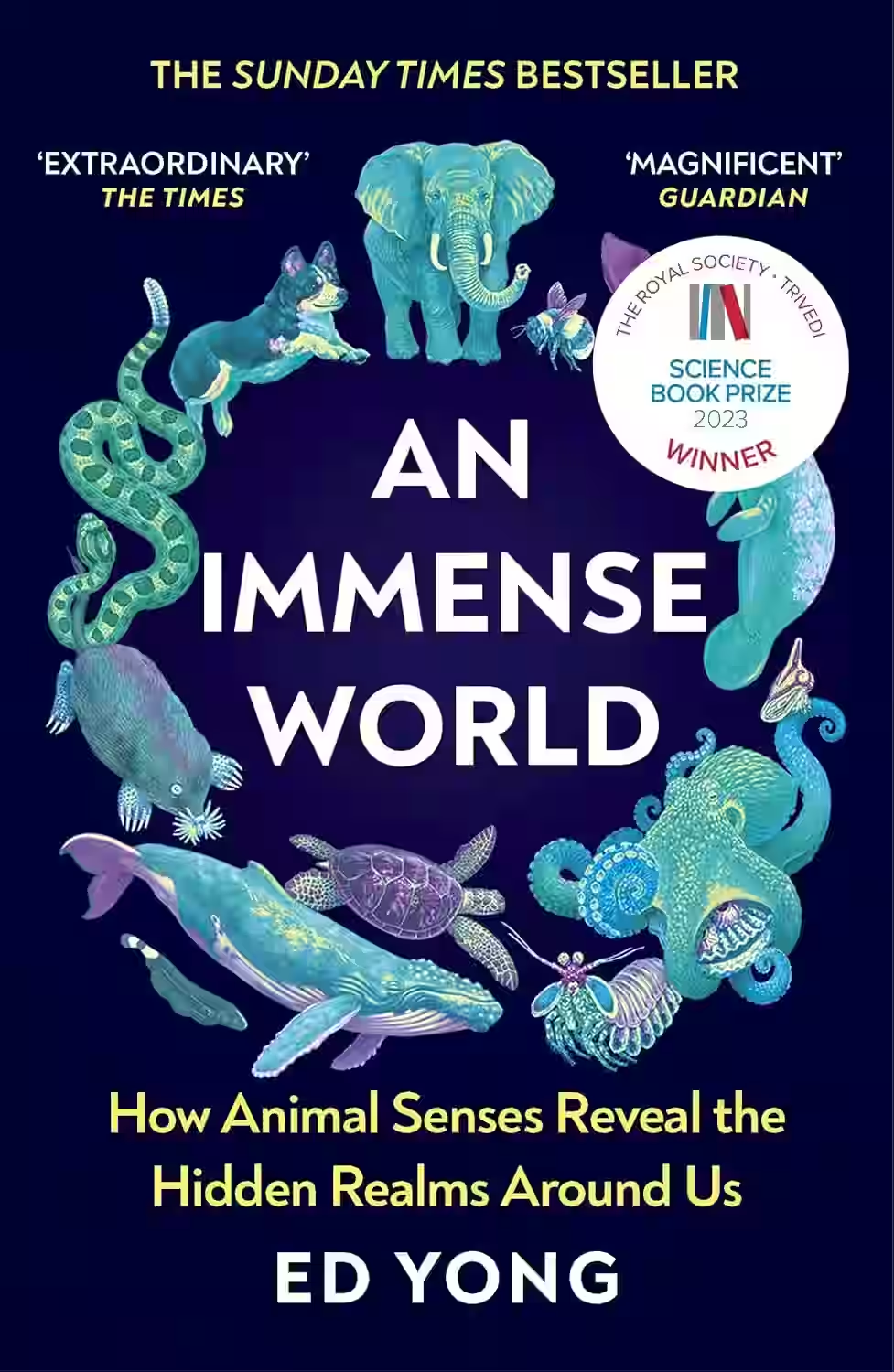
An Immense World: How Animal Senses Reveal the Hidden Realms Around Us
by Ed Yong
An Immense World: How Animal Senses Reveal the Hidden Realms Around Us by Ed Yong is a captivating exploration of the myriad ways animals perceive their environments. Yong introduces readers to the concept of the Umwelt, the unique sensory world each species inhabits. Through engaging narratives, he delves into extraordinary sensory abilities: turtles navigating via Earth's magnetic fields, beetles detecting fires from miles away, and scallops possessing dozens of eyes. Yong's vivid storytelling not only illuminates these hidden realms but also underscores the impact of human-induced sensory pollution on wildlife. Celebrated for its insightful prose, the book earned the 2023 Andrew Carnegie Medal for Excellence in Nonfiction and was named one of The New York Times' "10 Best Books of 2022" .
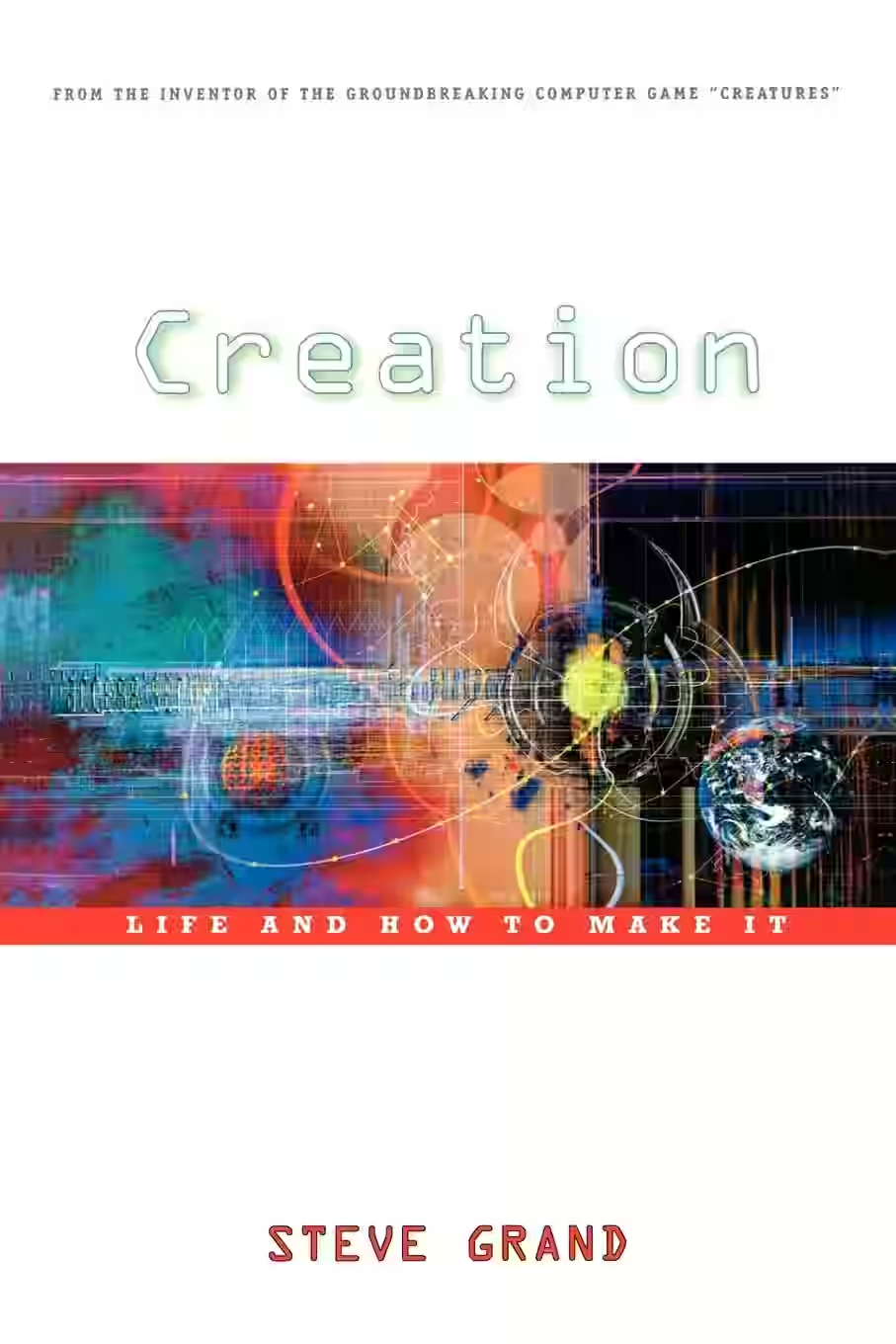
Creation: Life and How to Make It
In Creation, Steve Grand—creator of the artificial life game Creatures—explores the nature of life, intelligence, and consciousness from the perspective of an artificial life researcher. Blending computer science, biology, and philosophy, Grand argues that life can be understood and even recreated through complex, self-organizing systems. He challenges traditional views of the mind and body, suggesting that understanding emergence and connection is key to replicating living processes. With imagination and technical insight, Creation is a provocative meditation on what it means to be alive—and whether machines can one day truly think, feel, and evolve like biological organisms.
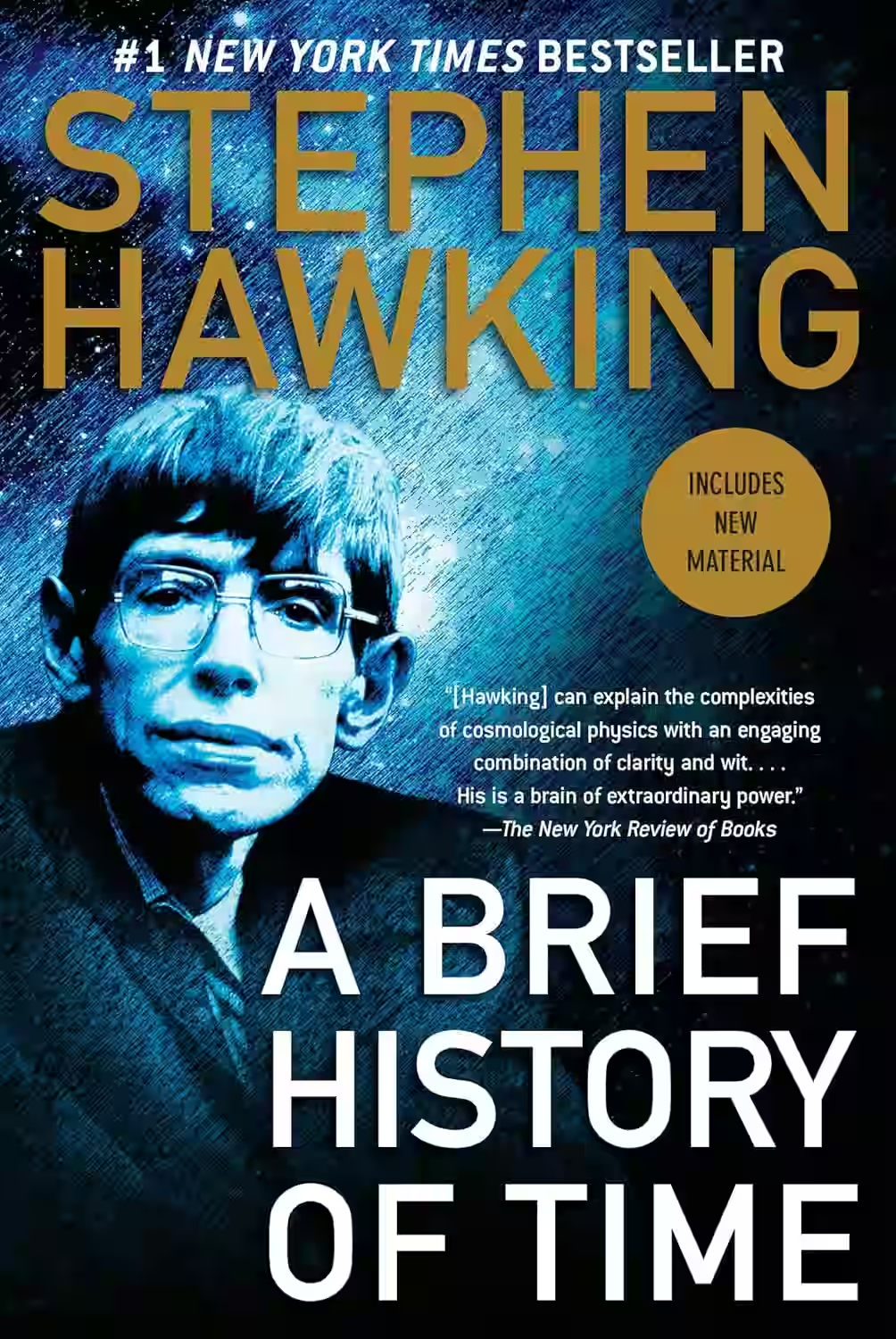
A Brief History of Time
Was there a beginning of time? Could time run backwards? Is the universe infinite or does it have boundaries? These are just some of the questions considered in the internationally acclaimed masterpiece by the world renowned physicist - generally considered to have been one of the world's greatest thinkers. It begins by reviewing the great theories of the cosmos from Newton to Einstein, before delving into the secrets which still lie at the heart of space and time, from the Big Bang to black holes, via spiral galaxies and strong theory. To this day A Brief History of Time remains a staple of the scientific canon and its succinct and clear language continues to introduce millions to the universe and its wonders.
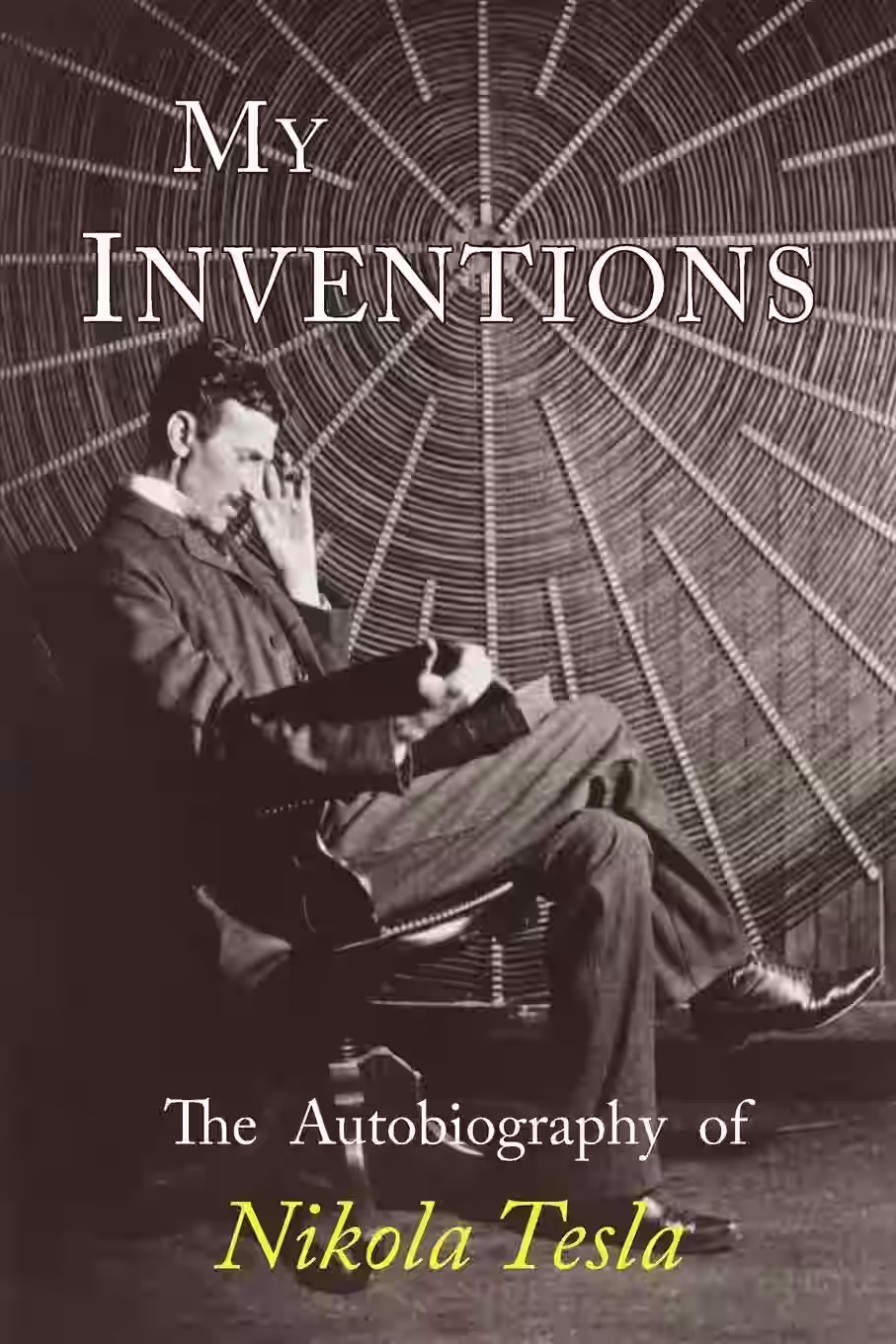
My Inventions: The Autobiography of Nikola Tesla
by Nikola Tesla
Nikola Tesla (1856–1943), a visionary of the electronic age, pioneered much of modern electrical and communication systems. His groundbreaking work included the alternating-current system, radio, the Tesla coil, wireless transmission, and fluorescent lighting. Despite his monumental contributions, Tesla's genius was often misunderstood, leading to others being credited for his innovations. This volume, originally a 1919 magazine series, offers Tesla's own account of his life, from his Croatian boyhood and European education to his collaboration with Edison and his subsequent revolutionary research. Written with wit, his memoir provides fascinating insights into the mind of a true scientific pioneer, covering his early life, inventions, and key discoveries like the rotating magnetic field and telautomatics.
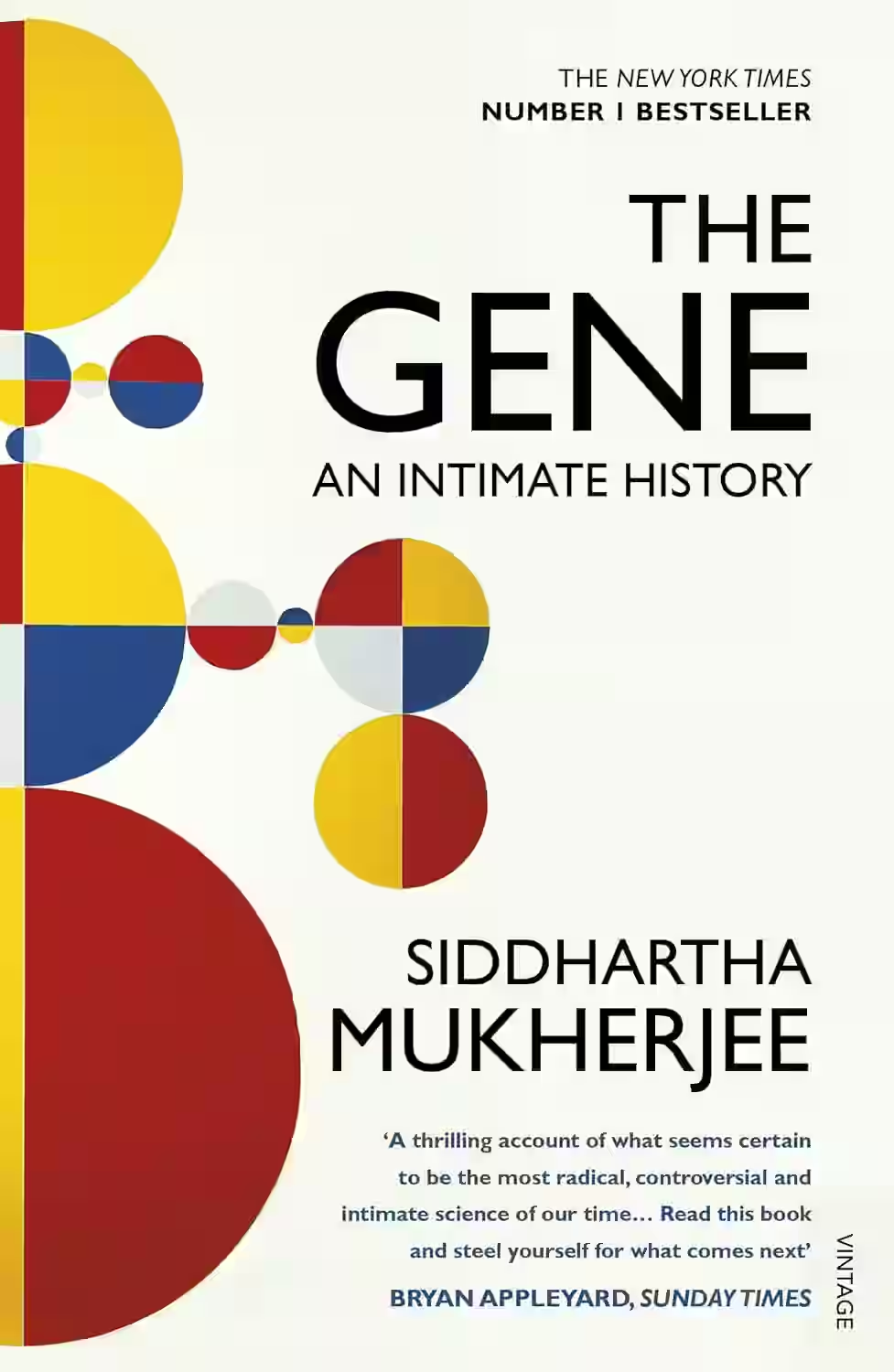
The Gene: An Intimate History
In The Gene, Siddhartha Mukherjee traces the history of genetic science, weaving together personal stories, scientific milestones, and ethical dilemmas. From Mendel’s pea plants to the Human Genome Project, the book explores how our understanding of heredity has evolved and what it means for the future of medicine and identity. Mukherjee, an oncologist and researcher, brings clarity and humanity to complex topics, making the science both accessible and emotionally resonant. The book also examines the dark side of genetics, including eugenics and discrimination. The Gene is a masterful blend of biography, science writing, and philosophical reflection.
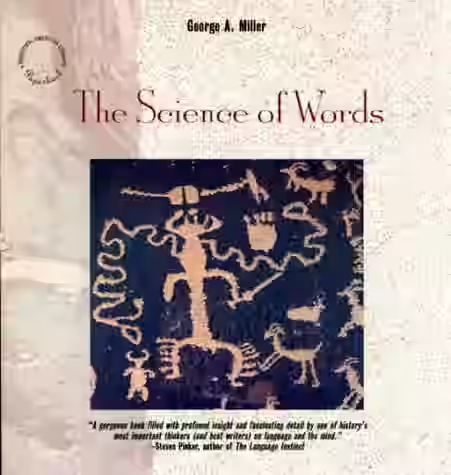
The Science of Words
In The Science of Words, cognitive psychologist George A. Miller offers an accessible look into how language works—from meaning and memory to syntax and speech. Drawing on decades of research in psycholinguistics, he explores how people learn, process, and produce words. Miller explains the relationships between language and thought, covering topics like categorization, semantic networks, and ambiguity. The book bridges linguistics and psychology, showing how language reflects and shapes the human mind. It's a foundational work for understanding language acquisition, cognitive science, and the nature of communication. Clear and engaging, it’s ideal for students and curious readers alike.
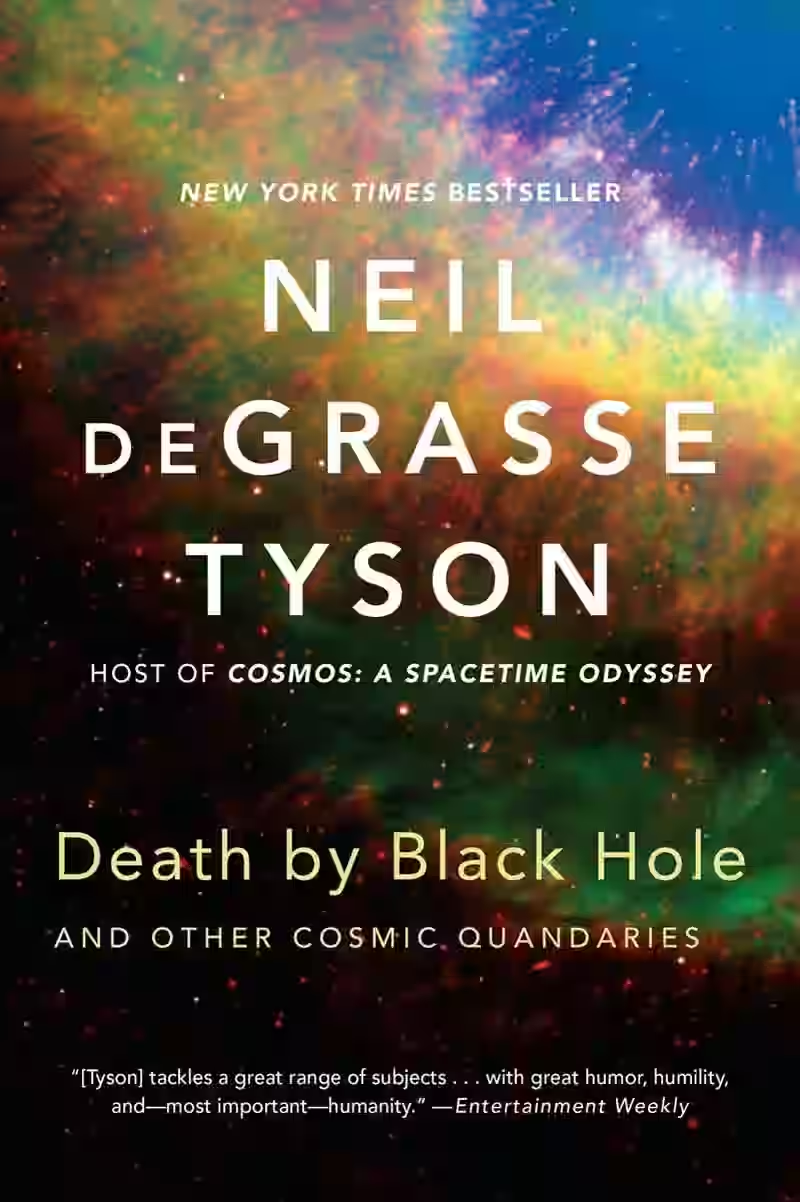
Death by Black Hole
In 'Death by Black Hole', Neil deGrasse Tyson explores the wonders of our universe with a mix of awe-inspiring science and engaging storytelling. From the violent cosmic collisions to the mysteries of black holes, Tyson takes readers on a journey through space and time, unraveling complex concepts with clarity and humor. With thought-provoking essays on topics like the search for extraterrestrial life and the nature of reality, this book offers a captivating blend of astrophysics and philosophy. Tyson's passion for science shines through, making this a must-read for anyone curious about the mysteries of the cosmos.
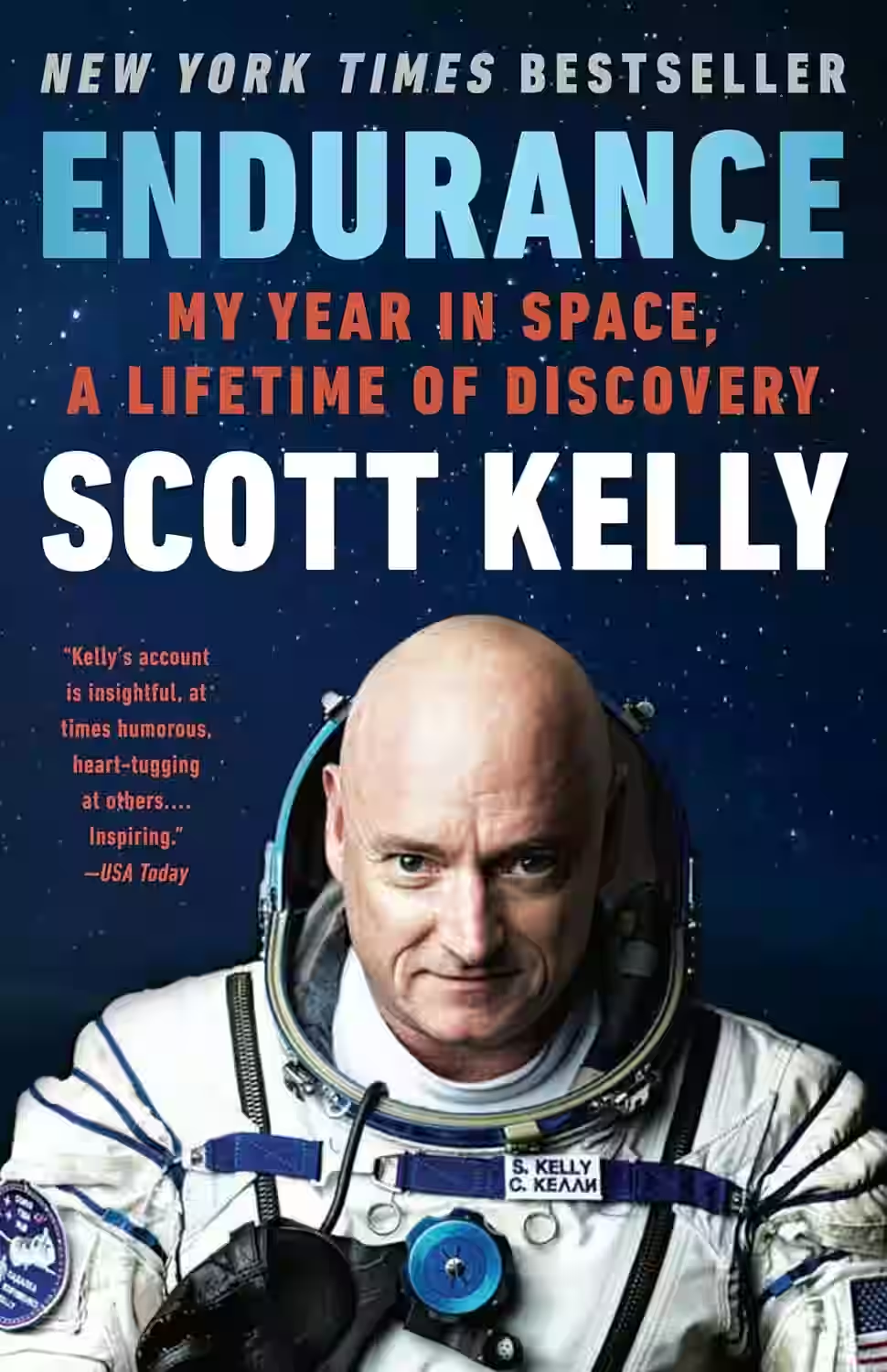
Endurance by Scott Kelly
by Scott Kelly
In 'Endurance' by Scott Kelly, readers are taken on a riveting journey through the astronaut's record-breaking year in space. Kelly provides a candid and introspective look at the challenges he faced during his mission aboard the International Space Station, including the physical and emotional toll of long-duration spaceflight. Through vivid storytelling, he shares the awe-inspiring beauty of Earth from above and the profound impact of isolation on the human psyche. This memoir offers a unique perspective on the demands of space exploration and the resilience required to endure the harsh conditions of outer space.
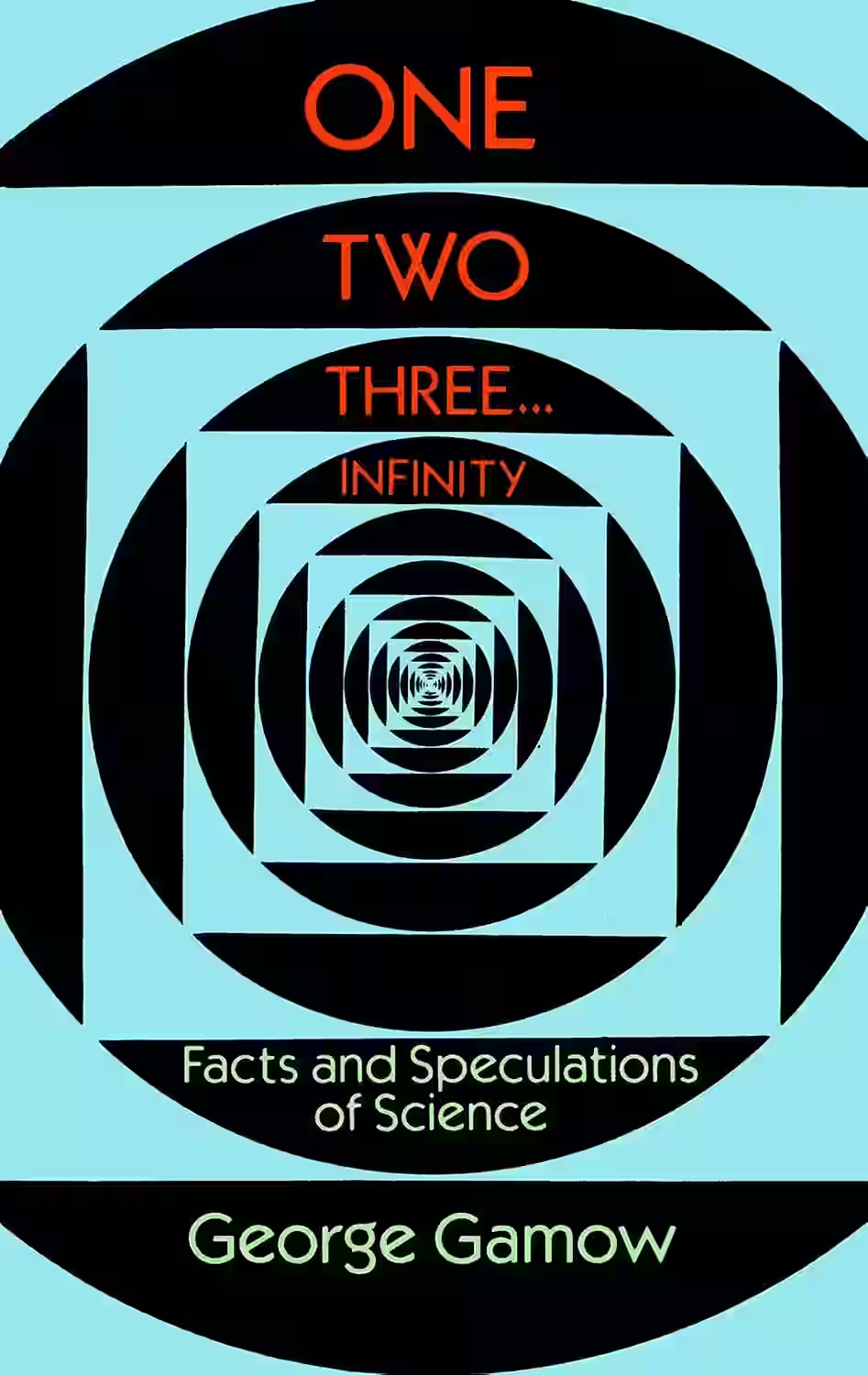
One, Two, Three... Infinity
by George Gamow
This classic science book offers a playful, accessible exploration of fundamental concepts in math and physics. George Gamow—a theoretical physicist and gifted writer—explains topics like infinity, relativity, atomic structure, and probability with humor and clarity. Written for a general audience, the book makes abstract ideas tangible through thought experiments and analogies. First published in 1947, it remains a beloved introduction to scientific thinking and curiosity. Gamow’s enthusiasm for discovery is infectious, making this an inspiring read for both students and adults interested in the wonder of the universe and the logic that underpins it.
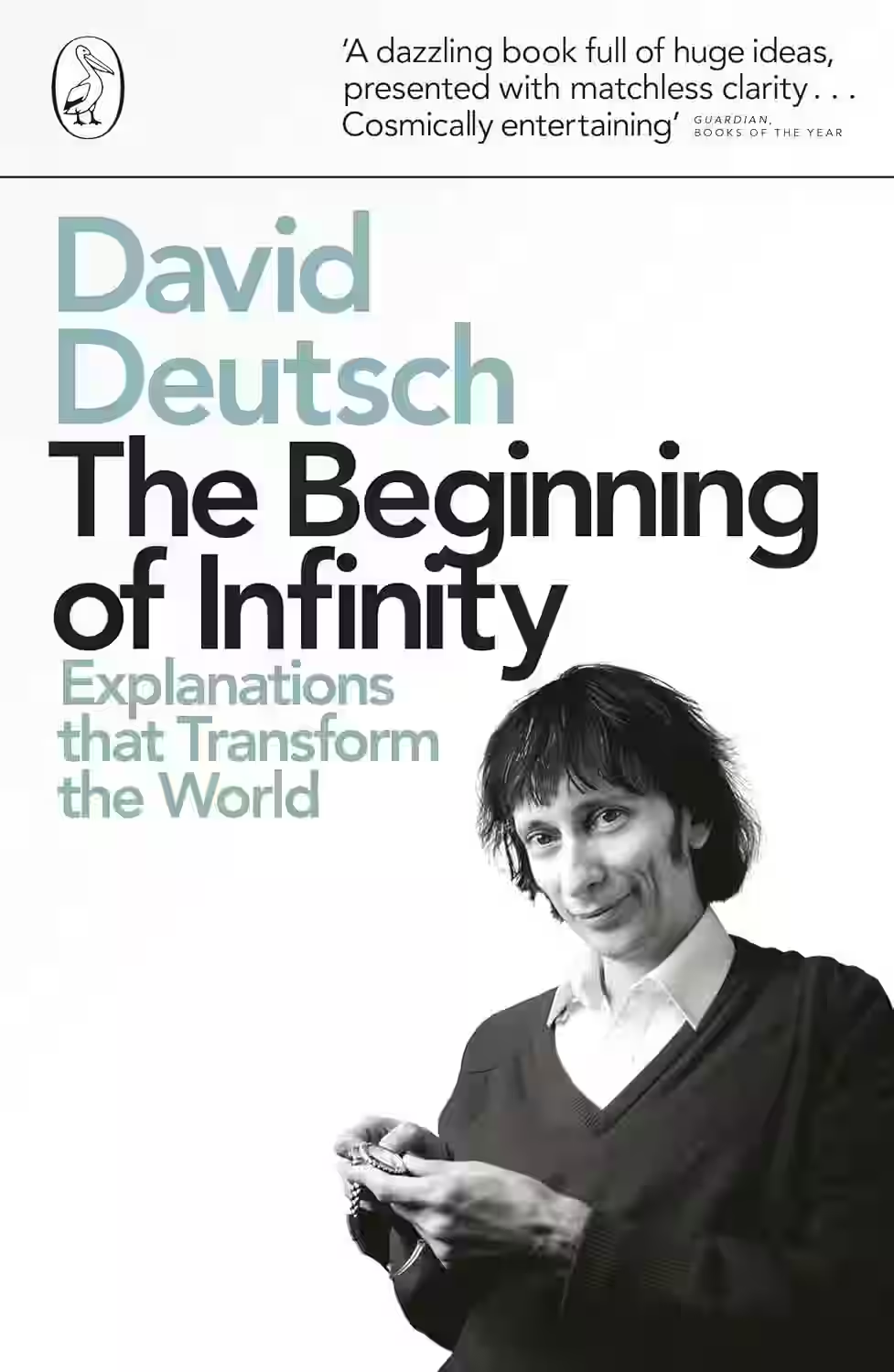
The Beginning of Infinity
David Deutsch's The Beginning of Infinity explores the boundless potential of human knowledge and progress. He argues that through better explanations and critical thinking, humanity can solve problems previously deemed unsolvable. The book delves into topics like quantum physics, philosophy, and the nature of scientific discovery, emphasizing that there are no inherent limits to what we can understand. Deutsch posits that with the right knowledge, we can achieve infinite progress, making this work a profound examination of human potential and the transformative power of ideas.
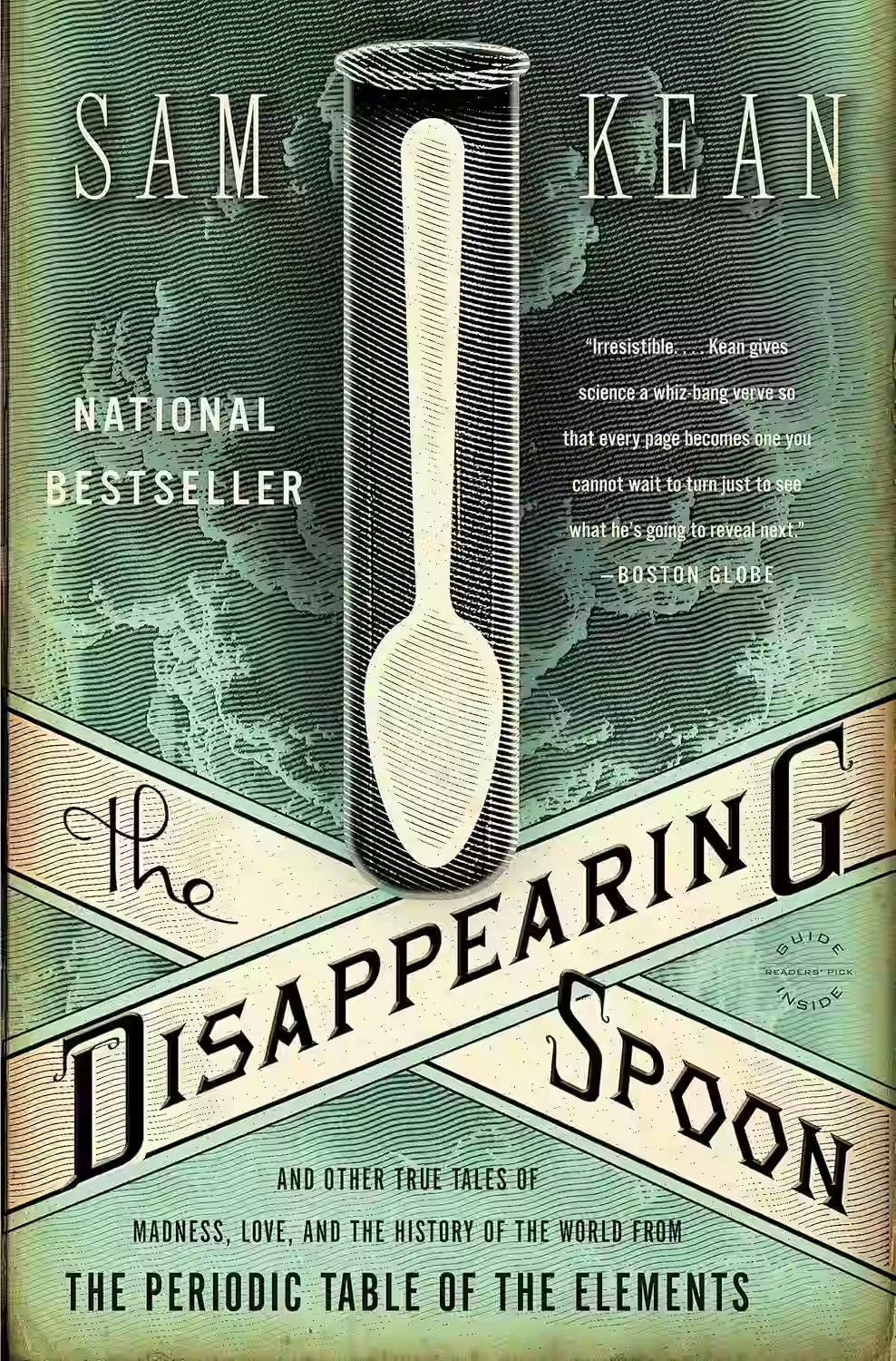
The Disappearing Spoon: And Other True Tales of Madness, Love, and the History of the World from the Periodic Table of the Elements
by Sam Kean
In 'The Disappearing Spoon,' Sam Kean takes readers on a fascinating journey through the quirky and captivating history of the periodic table of elements. Through a blend of science, history, and storytelling, Kean revives the tales behind each element, from their serendipitous discoveries to their impact on society and culture. The book showcases the human side of science, delving into stories of eccentric scientists, political battles, and unexpected connections between elements. Kean's witty and engaging narrative style makes complex scientific concepts accessible, appealing to both science enthusiasts and history buffs. 'The Disappearing Spoon' is a delightful exploration of the elemental building blocks that shape our world.
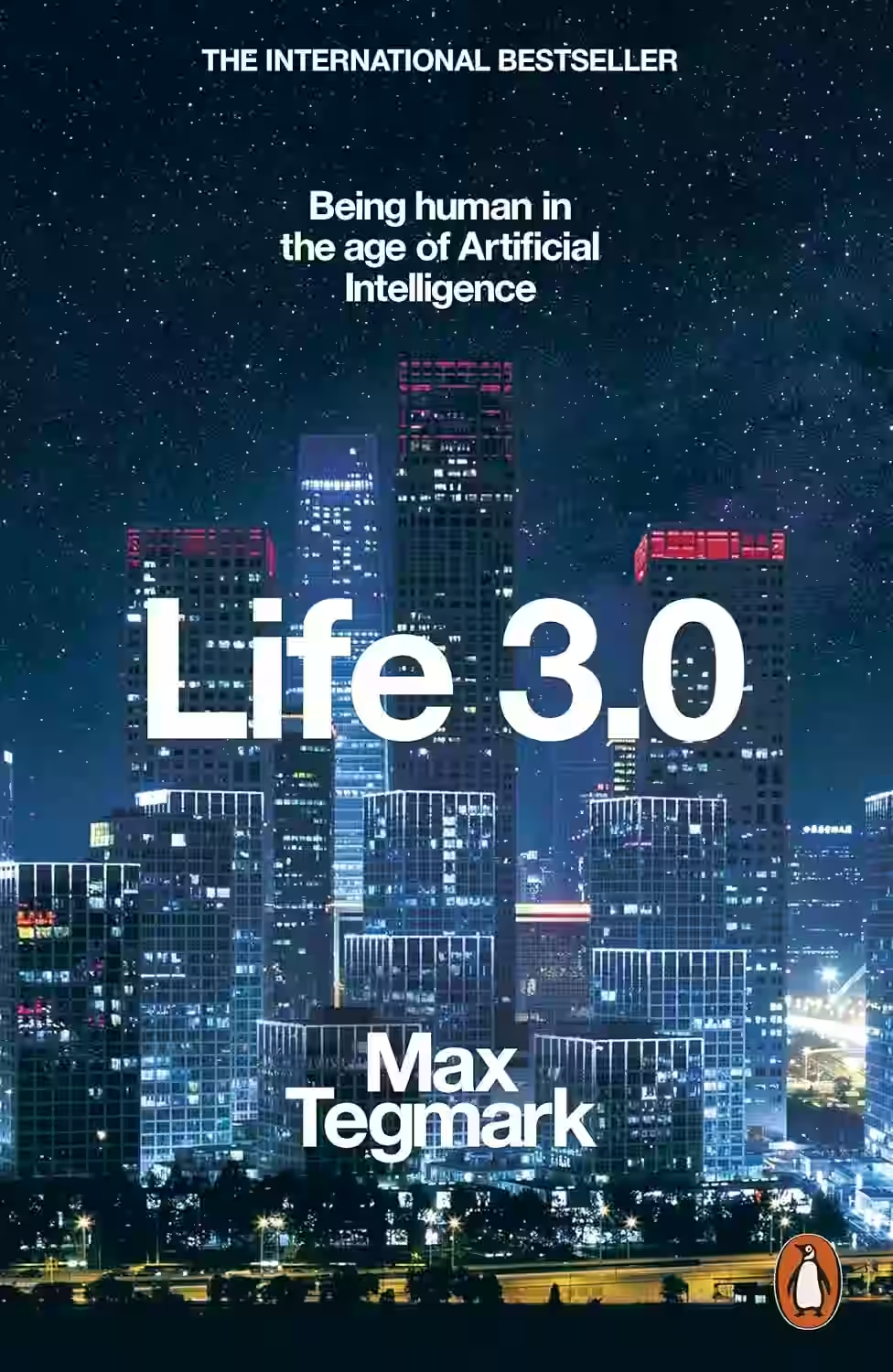
Life 3.0: Being Human in the Age of Artificial Intelligence
by Max Tegmark
In Max Tegmark's insightful book 'Life 3.0: Being Human in the Age of Artificial Intelligence', readers are taken on a fascinating journey exploring the implications of Artificial Intelligence on humanity's future. Tegmark delves into thought-provoking questions about consciousness, ethics, and the socio-economic impacts of AI. Through engaging prose and thorough research, he presents various scenarios of how AI may shape the world and challenges readers to contemplate what it means to be human in a technologically advancing society. 'Life 3.0' offers a balanced view of the promises and perils AI brings, making it a compelling read for anyone interested in the intersection of technology and humanity.
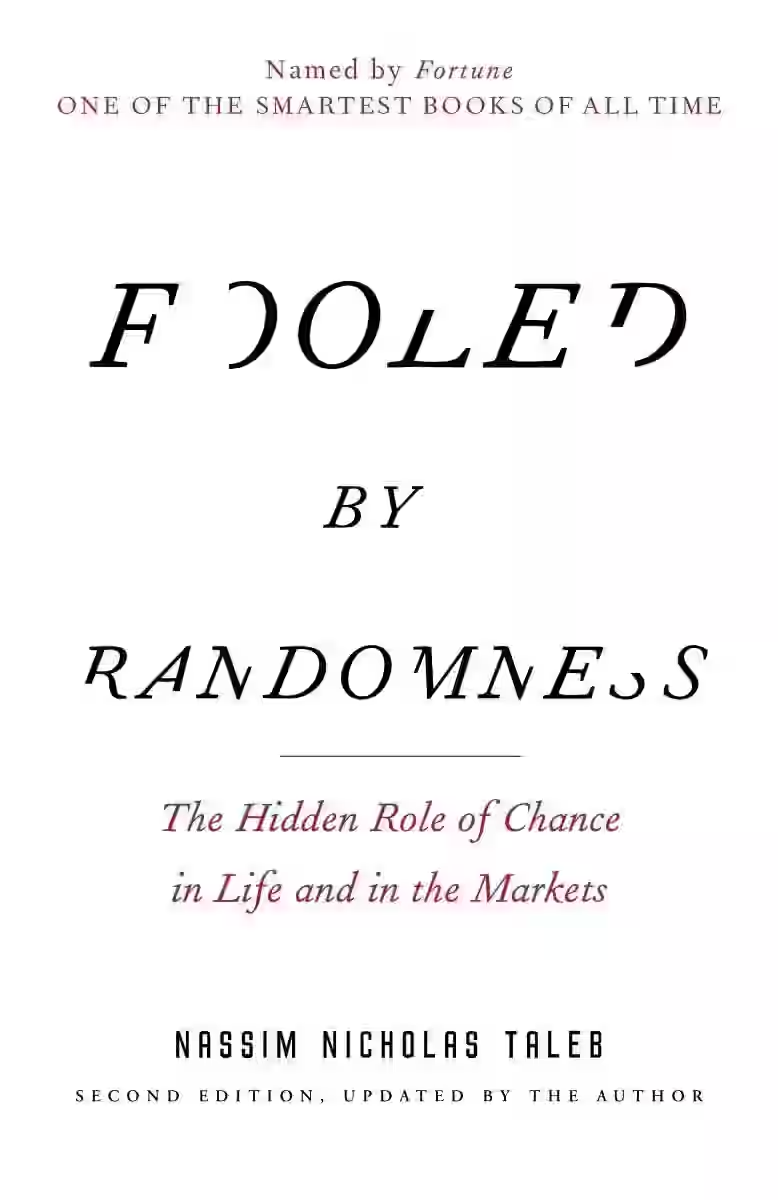
Fooled by Randomness: The Hidden Role of Chance in Life and in the Markets
In 'Fooled by Randomness,' Nassim Nicholas Taleb explores the intricacies of chance, luck, and randomness in our lives and in financial markets. Through a blend of anecdotes, insights, and mathematical models, Taleb challenges the conventional wisdom surrounding success and failure, arguing that random events play a larger role than we often acknowledge. By delving into the concepts of survivorship bias, overconfidence, and the narrative fallacy, Taleb encourages readers to reevaluate their understanding of risk and uncertainty. This thought-provoking book prompts reflection on how we perceive and navigate randomness, offering valuable lessons for decision-making in various spheres of life.
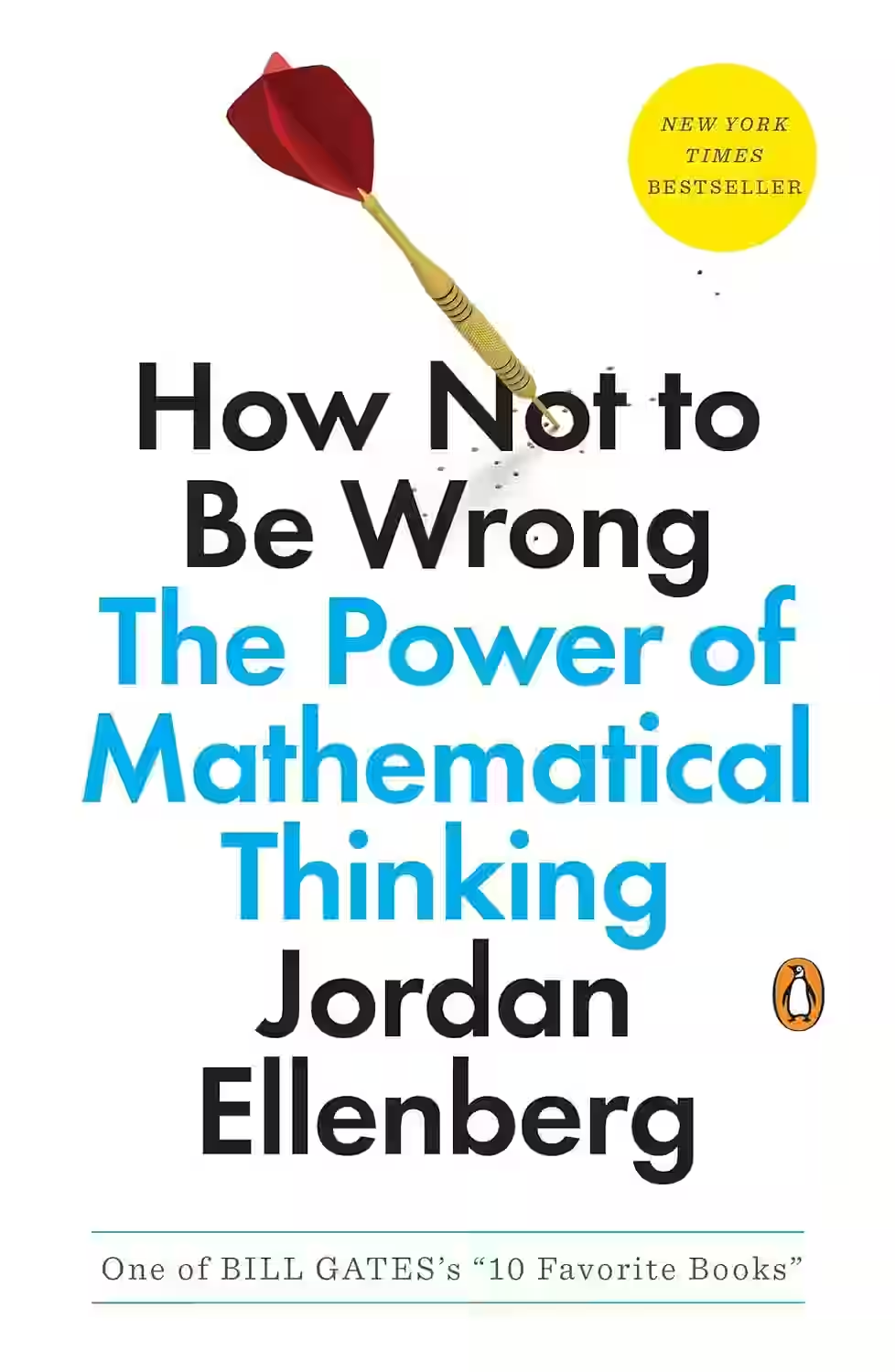
How Not to Be Wrong: The Power of Mathematical Thinking
In 'How Not to Be Wrong: The Power of Mathematical Thinking' by Jordan Ellenberg, readers are taken on a captivating journey through the world of mathematics and its practical applications in everyday life. Ellenberg masterfully explores how mathematical reasoning can be utilized to make better decisions, solve complex problems, and navigate a data-driven world with confidence. Through engaging anecdotes and clear explanations, he demystifies mathematical concepts like statistics and probability, showing readers that math is not just about numbers but about critical thinking and problem-solving. This insightful and thought-provoking book challenges readers to embrace the power of mathematical thinking in all aspects of their lives.